On the page you can get different latest solutions to remove 3uTools without troubles. If you’re stuck in the removal somehow, reading the article will help you out.
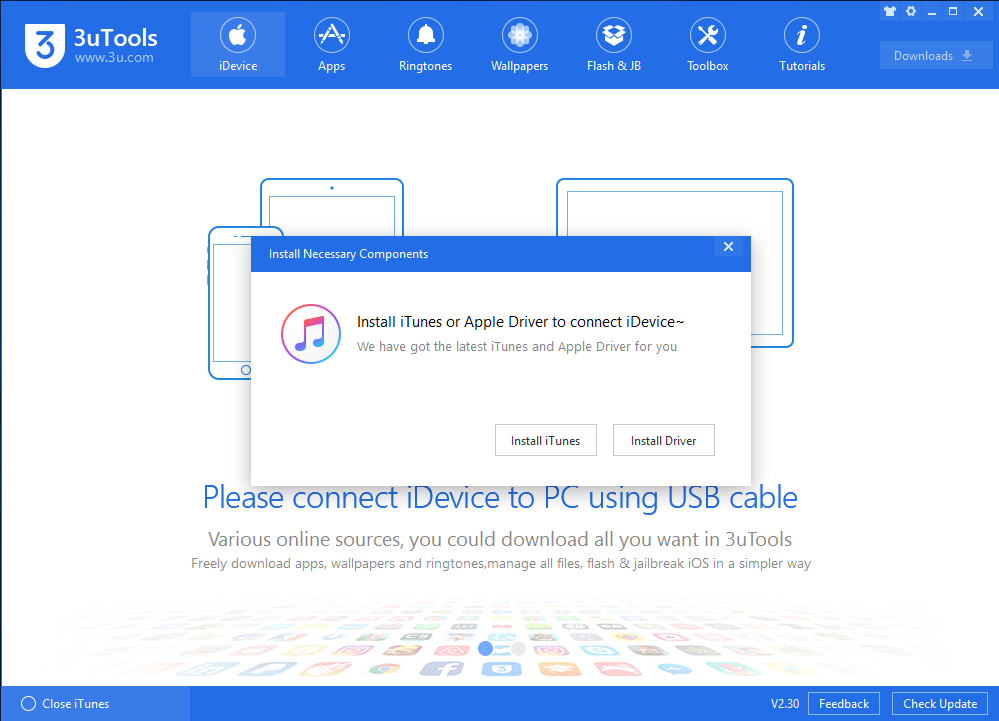
3uTools offers one-click downloads for iOS USERS with free genuine iOS apps, popular games, free ringtones and HD wallpapers. 3uTools can back up data, manage files, photos, videos, contacts.
But if you’re capable of doing these things by basic means, then you don’t really need such a tool. For any reason you want to remove 3uTools in Windows, continue your reading below.

How to Manually Remove 3uTools in Windows?
The steps I listed below can be performed in both Windows 8 & Windows 10, and in the end of these article I’ll teach you how to switch between the Start menu and Start screen in Windows 10, in case some users still haven’t figured out such features yet. Now let’s see how to correctly remove 3uTools from your computer:
you can close the program first.
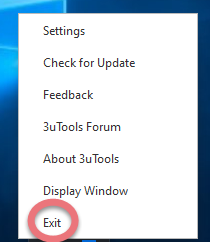
Step 1: Remove 3uTools via the programs list.
If you want to do it via the Start menu:
1.1 In the bottom-left corner of your screen, on the Start button and select Settings.
1.2 Click System > Apps & Features.
1.3 Select 3uToolsand click Uninstall > Uninstall.
If you want to do it via the Start screen:
1.1 In the bottom-left corner of your screen, right-click the Start button.
1.2 Click Programs and Features.
1.3 Find 3uTools and double-click it to activate the built-in uninstaller.
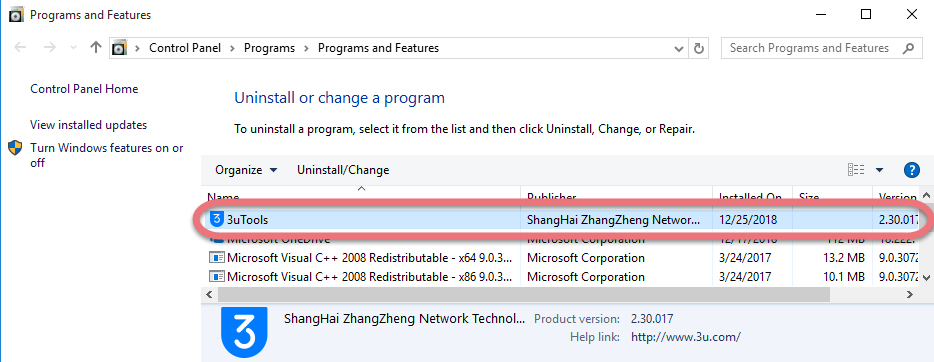
Step 2: Follow the prompts to proceed.
2.1 When you see the option “Remove Personal Settings,” check it if you don’t want to reinstall the program, then click Remove.
2.2 Wait for the built-in uninstaller to finish its job.
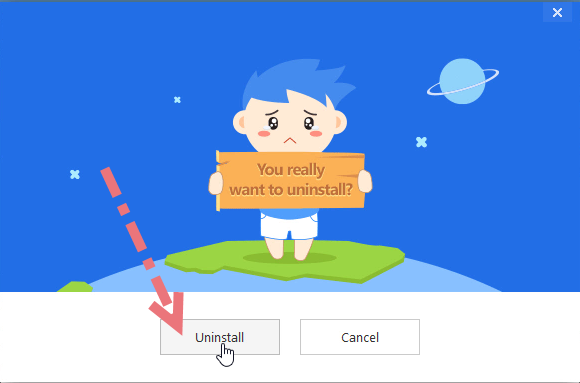
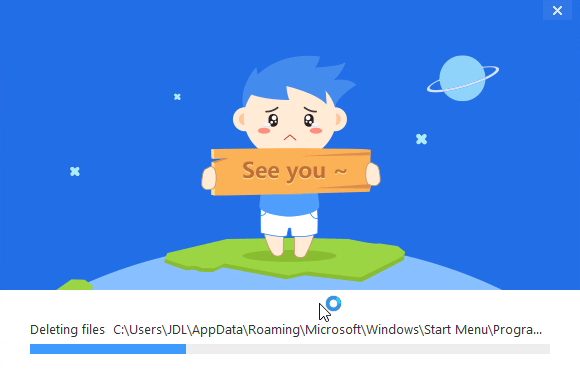
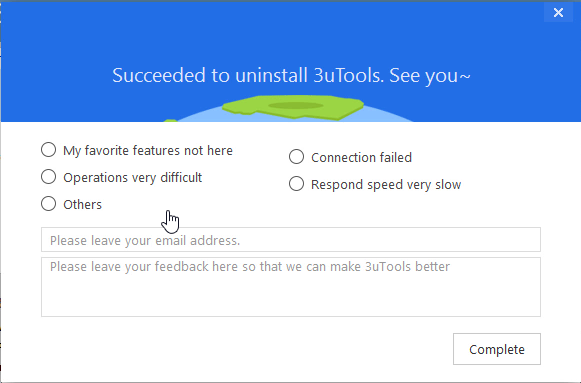
Step 3: Remove 3uTools Vestiges via the Registry Editor
If you want to do it via the Start menu:
3.1 Click the Start, and enter “regedit” to open the Registry Editor.
3.2 On the navigator, click Edit > Find…, and enter “3uTools” to find & delete the vestiges if found.
If you want to do it via the Charms bar:
3.1 Point your mouse to the bottom-left corner of your desktop, and click Search on the charms bar.
3.2 Enter “regedit” in the box to open the Registry Editor.
3.3 On the navigator, click Edit > Find…, and enter “3uTools” to find & delete the vestiges if found.

A Simpler Way to Remove 3uTools & Other Unwanted Programs
Another solution I would like to introduce is an easy-to-use, small-sized tool that supports all the popular Windows OS versions. You can also try to uninstall other programs that are not welcome anymore in the system with it. How does it work? Take a quick look below:
Step 1: Click any of the blue download buttons on this page or visit the homepage to download Special Uninstaller.
Step 2: Run it, and you can see clearly what programs are installed currently. Choose 3uTools and click Run Uninstaller.
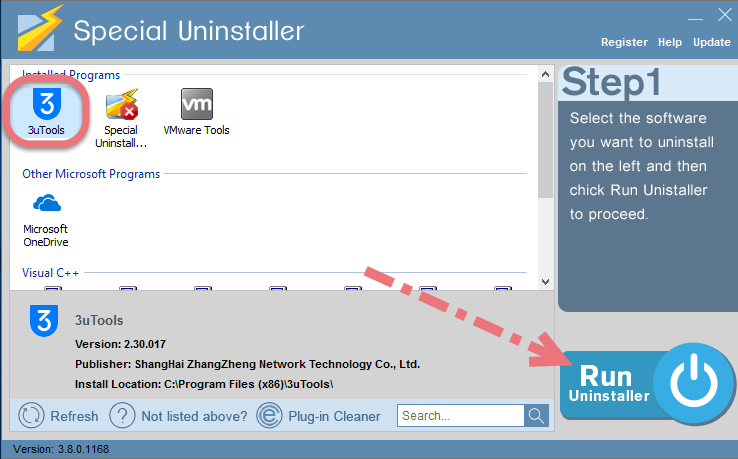
It will scan for all the related files and get ready for your next request, during which you may be asked for confirmation of this removal, just click Yes/OK to proceed.
Step 3: Click Scan Leftovers when it turns to blue, then you see the all the vestiges that most users will forget to delete during the manual removal. Click Delete Leftovers to fully remove 3uTools.
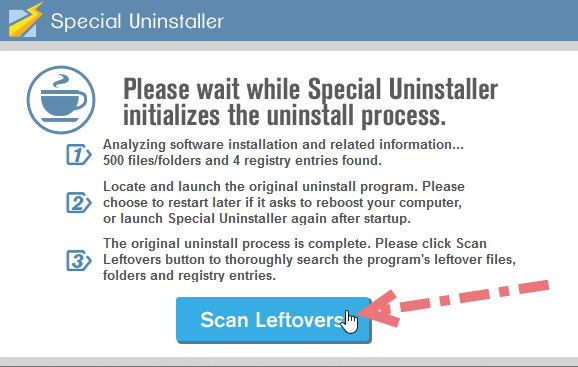
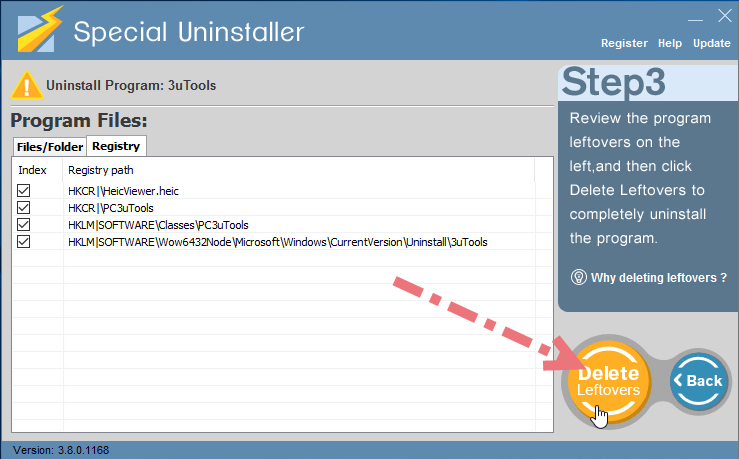
Clicking Back to refresh the list of currently installed programs, and check whether your target is no long there. You can perform the same steps to remove other needless programs and free up some disk space. I do hope this recommendation can be a better removal solution to you anytime.
How to Switch between the Start Menu & Start Screen in Windows 10?
Generally your device will determine whether the Start menu or Start screen is the default option in the new version of Windows. After eliminating the Start menu in Windows 8, Microsoft received complaints from PC users, who yearned for the traditional, at least similar operations. That move opened up a large market for third-party Start menu replacements.
But with Windows 10, you can have both worlds. So personally I’ll choose the official instead of others. Whether you use a PC, a tablet or a hybrid, you can easily switch between the new Start menu and the Start screen. See how to make that happen:
To change the Start screen into the Start menu:
1. Go to Start > Settings command.
2. At the Settings window, click the setting for Personalization.
3. At the Personalization window, click the option for Start.
4. In the right pane of the screen, the setting for “Use Start full screen” is turned on. Just turn it off.
5. Click the Start button, and you should see the Start menu. 🙂

Leave a Reply